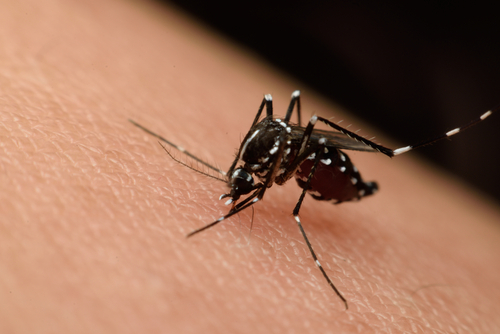
University of Texas Medical Branch (UTMB) at Galveston researchers, working in collaboration with colleagues from Mexico, recently discovered a direct connection between the Aedes aegypti mosquito and Zika transmission in the Americas during an outbreak in southern Mexico.
The findings, published in the Journal of Infectious Diseases, will aid scientists in better targeting efforts for the control of the population of Zika virus carrying mosquitos.
“Because several experimental studies have suggested that A. aegypti is not highly susceptible to Zika virus infection and there has been a lack of direct evidence of A. aegypti infection during outbreaks, some scientists have speculated that other common tropical urban mosquitoes such as Culex quinquefasciatus could be involved,” UTMB professor Scott Weaver, senior author of this paper, said. “We sought to more directly investigate which mosquito is responsible for spreading Zika virus so that we can selectively tailor our mosquito control efforts to a specific mosquito species’ habits.”
Researchers from the Mexican National Institute of Public Health completed a house-to-house survey in November and December to investigate an outbreak in communities on the Mexico-Guatemala border. A total of 119 blood samples were collected from those suspected of Zika virus infection. Twenty-one percent of the samples were confirmed to contain ZIka virus.
Adult mosquitoes were also gathered in and around 69 homes of suspected Zika patients. Zika virus was identified in several samples of A. aegypti, but not in other mosquito species.
“Our study indicates that A. aegypti was the principal carrier of Zika virus in the Tapachula area of Chiapas State, based on the detection of virus in several mosquito pools and the prior demonstrated transmission competence of this species of mosquito,” Weaver said. “It’s important to note that Zika was not found in C. quinquefasciatus, another common urban tropical mosquito discussed as a potential Zika vector.”

